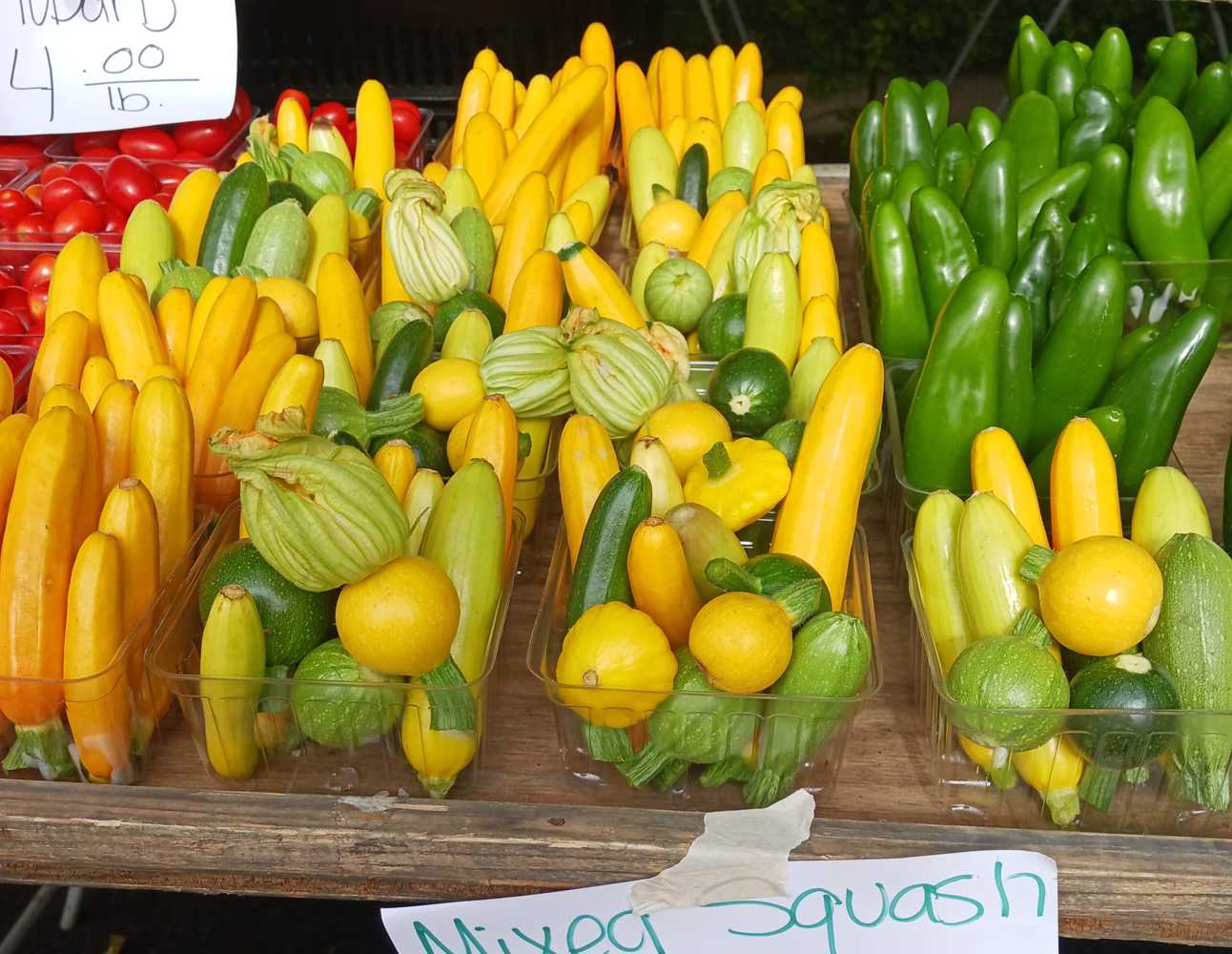Market season is underway!
When the weather warms up, farmers' markets pop up all over the place. Here are some things you should keep in mind before you head out to one for your weekly shopping.
1. Producer-only markets are the only ones you can be sure will feature locally-grown or produced items.
If it doesn't specify the producer-only designation, your local farmers' market may be selling purchased produce, just like chain grocery stores. Look for signs about where the fruit or vegetables or grown, or just speak up and ask. A farmer who grew their own products will be happy to tell you all about where they came from. When in doubt, look for dirt!
Don't despair if your market isn't producer-only. If the fruit and vegetables look good, chances are they are fresher than what you'll find in a grocery store. The vendors likely purchased them directly from the same suppliers, right before market day.
2. Haggling is acceptable—within reason.
At the end of the posted market hours, you may be able to get some good deals. Don't be too aggressive, but see if sellers are willing to come down on bigger purchases. Most of the time, they would rather make a sale than have to lug everything back home.
Not sure how to ask for a lower price? Simply ask if the seller offers end-of-day discounts. They will know exactly what you mean.

3. Seconds can be had for a song.
If you have plans for jam or baked goods, you don't always need the best, blemish-free produce. A fruit vendor might be willing to sell you whole boxes of bruised fruit at a drastically reduced price if you just ask. Be sure to wash and process the fruit before you use them, and cut off any really damaged bits.
Seconds are particularly good for fruit like apples, peaches, and berries that you need in large quantities for canning or baking. All you need is a good recipe and the time to carefully prep.
4. Cash isn't always king.
You don't have to arrive with a purse bulging with bills. Most market vendors accept credit cards now, and some even accept benefits from the Special Supplemental Nutrition Program for Women, Infants, and Children (WIC).
5. Eating local means thinking outside the box.
Some of the best meals happen when you don't have a plan. Take a lap around the market to see what's really fresh, then think about how you would prepare the ingredients. Ask the vendor if you're really stumped, but most of the time, fresh produce needs only the simplest of cooking methods. Corn on the cob is at its sweetest when it's very lightly steamed, for example.
Have you ever had fresh beans that have never been dried? Once you taste their creamy consistency, you'll be craving them every summer. The same goes for freshly-picked tomatoes, fruit, and corn. Take your cues from what looks the most inviting, and you won't go wrong.
